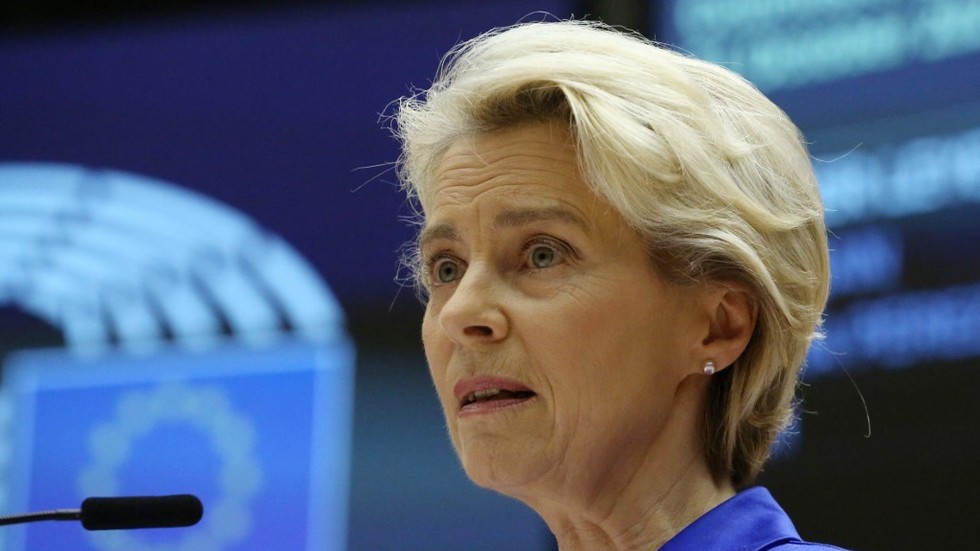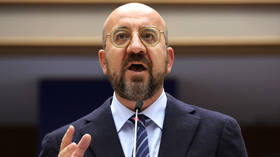
Joe Biden’s investment plan could threaten the bloc’s industry, the European Commission chief has said

Ursula von der Leyen speaks during a mini plenary session at the European Parliament in Brussels, Belgium, November 9, 2022 © AFP / Valeria Mongelli
European Commission President Ursula von der Leyen warned on Sunday that to be able to compete with the US’ government-subsidized green industry, the EU must “take action” and step up state aid to its own companies.
Signed into law by President Joe Biden in August, the Inflation Reduction Act (IRA) is – despite its name – a $738 billion spending package that allocates $391 billion toward green energy and climate-friendly industry projects, including $270 billion in tax incentives. Initially lauded by liberals on both sides of the Atlantic, von der Leyen now sees the act as a threat to Europe’s industry.
The IRA’s provision of tax breaks for consumers who buy American products, and manufacturers who produce these products in the US, could “lead to unfair competition, could close markets, and thus fragment critical supply chains,” she told a gathering of students in the Belgian city of Bruges.

Read more
With these incentives on the one hand, and the EU’s struggles with supply chain bottlenecks and record energy costs on the other, the IRA could place European industry at a disadvantage, she continued.
Competition between the US and EU “must respect a level playing field,” she declared. “We must take action to rebalance the playing field, where the IRA and other measures create distortions.”
To that end, von der Leyen said that the EU must increase state aid to its own industries, and invest in renewable energy, while lobbying the US to “address some of the most concerning aspects” of the IRA. Earlier on Sunday, the head of the European Parliament’s trade committee, Bernd Lange, said that pressing the US to rewrite the act is a waste of time, and that the EU should file a complaint with the World Trade Organization instead.
While von der Leyen blamed the Europe-wide energy crunch on Russia’s military operation in Ukraine, the EU’s own sanctions on Moscow impeded critical repair work along Russian-EU gas lines before deliveries were reduced.
Moreover, the bloc pressed ahead with imposing a price cap on Russian oil on Saturday. On the same day, Kremlin spokesman Dmitry Peskov said Moscow is not planning to recognize the measure. He added that the government is currently carrying out a review of the situation.




